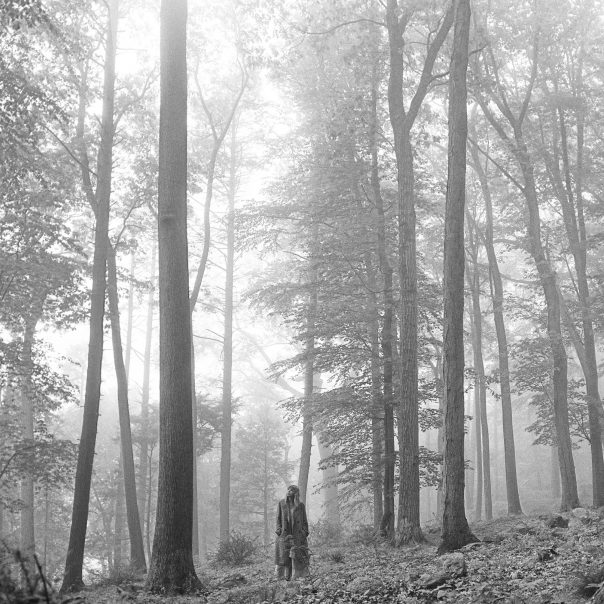ALBUM REVIEW: Taylor Swift quietly matures on ‘Folklore’

Taylor Swift, “Folklore.”
Taylor Swift’s rise from country star to pop icon had lows to match highs. Considering the abysmal, transparent coping mechanism that was 2017’s Reputation, all 2019’s Lover had to do was not be embarrassing. It wasn’t, but the album’s overblown pop sound felt more detached from her singer-songwriter roots than ever. Much has changed in the past 11 months, which nuked Swift’s summer plans. Rather than wallow in quarantine, she sought the help of Aaron Dessner of The National to bang out a 16-track album remotely. Folklore definitely sounds a lot like Dessner’s work, providing an interesting backdrop for Swift as she quietly takes steps of introspection and maturity.
Folklore
Taylor Swift
Republic, July 24
7/10
Like Coldplay’s Everyday Life, there’s an emphatic touch to Swift’s profanity in opener “the 1,” as well as several other songs. She’s not playing to the soccer moms and soccer-moms-to-be. The woody piano chords and snappy electronic beats reflect Dessner’s recent trend for minimalism, leaving his print of Folklore right off the bat. This is especially evident in the immersive ambiance that gradually washes over the swinging percussion and processed keyboards of “Cardigan.” In both cases, Taylor Swift weaves her bouncy hooks into the slow-burning instrumentation. The latter track gives a lot more metaphorical weight to her “guy broke my heart” mantra, “Marked me like a bloodstain/ I knew you/ Tried to change the ending/ Peter losing Wendy.”
The bedroom pop sheen of “the last great american dynasty” finds Taylor Swift examining the plight of a woman blamed for the death of her spouse. It’s more with Bruce Springsteen’s dramas than autobiography, a perspective that gives the Bon Iver collaboration “exile” room to breathe. Justin Vernon’s resonant, range-full voice electro-acoustic arrangements work swimmingly with Swift’s silky timbre, making for her most arresting work to date. Maybe it’s because of how it contrasts with the likes of “Look What You Made Me Do,” but this duet’s sweeping dynamics, vocal interplay and vivid storytelling are hard to deny.
With all of these new elements at play, and album art worthy of Chelsea Wolfe, a clear-cut throwback to high school drama like “betty” comes off a bit jarring. Still, the song presents a more self-critical side of Swift than she allowed on her early albums. “Dark” probably won’t ever be an adjective for Swift’s music, but Folklore sports unprecedented authenticity. “Mirrorball” carries more echoes of rootsy rock, throwing a bone to the old-school fans through a dreamy filter. Acoustic ballad “illicit affairs” and the staccato indietronica of “invisible strings” have a similar effect, but the former’s appraisal of an adulterous relationship effectively puts a stake in the heart of Swift’s previous penchant for romanticized schmaltz.
The meat of Folklore leans into Dessner’s influence, balancing robust dynamics and expanded instrumentation with spontaneous creativity. The multilayered ambiance and vocal harmonies give the ugly breakup depicted in “my tears ricochet” a much heavier impact. “This is me trying” proves Swift can make synth-pop that doesn’t suck, while the glacial, euphoric progression “epiphany” actually edges toward pure ambient music. While the stories being told aren’t unfamiliar, it’s clear that Swift’s time in isolation has allowed her to ruminate on her songwriting more deeply.
“Mad woman” could almost be seen as a more thoughtful take on Swift’s Reputation attitude, acknowledging the way people who hate you revel in your emotional outbursts. Swift’s piano modulations and echoing guitar commingle with nuanced beats and swelling orchestration, showing a remarkable chemistry between her and Dessner, social distancing notwithstanding. It’s likely that having Jack Antonoff behind the soundboard as well prevented Folklore from sounding too much like The National—though fans of I Am Easy To Find will find a lot to appreciate.
While her voice generally excels in Folklore’s softer dynamic range, Swift’s delivery and lyricism remains the make-it-or-break-it element to her songs. For better or worse, her longstanding approach to melody and love and loss narratives on “seven” and “august” shines through tasteful indie folk arrangements. Though her wordplay and melodies carry the life and musical experience of a 30-year-old pop star, Swift’s nonthreatening cadence and predictable subject matter won’t do a lot to win over those who haven’t liked her singing thus far.
Folklore contains Swift’s most thoughtful and engaging material to date. The bass and guitar harmonies of “peace” and spiraling piano lines of “hoax” are welcome additions to Swift’s sound, like every flourish this album pulls off. The former cut’s line, “Your integrity makes me seem small/ You paint dreamscapes on the wall/ I talk shit with my friends/ It’s like I’m wasting your honor,” takes the opposite perspective of the lovesick girl everyone memed for centering her life around no-good guys. Even when the latter closes the album with broken kingdoms and beaten hearts, she finds tragic beauty instead of frivolous emotional fallout.
Taylor Swift has made an album that will challenge both her fans and her detractors. The artistic strides this album takes develop her persona that people either love or love to hate. After a rocky 2010s, Swift has used the unsavory start of the 2020s to elaborate upon her beginnings as a girl with a guitar.
Follow Max Heilman at Instagram.com/maxlikessound.
